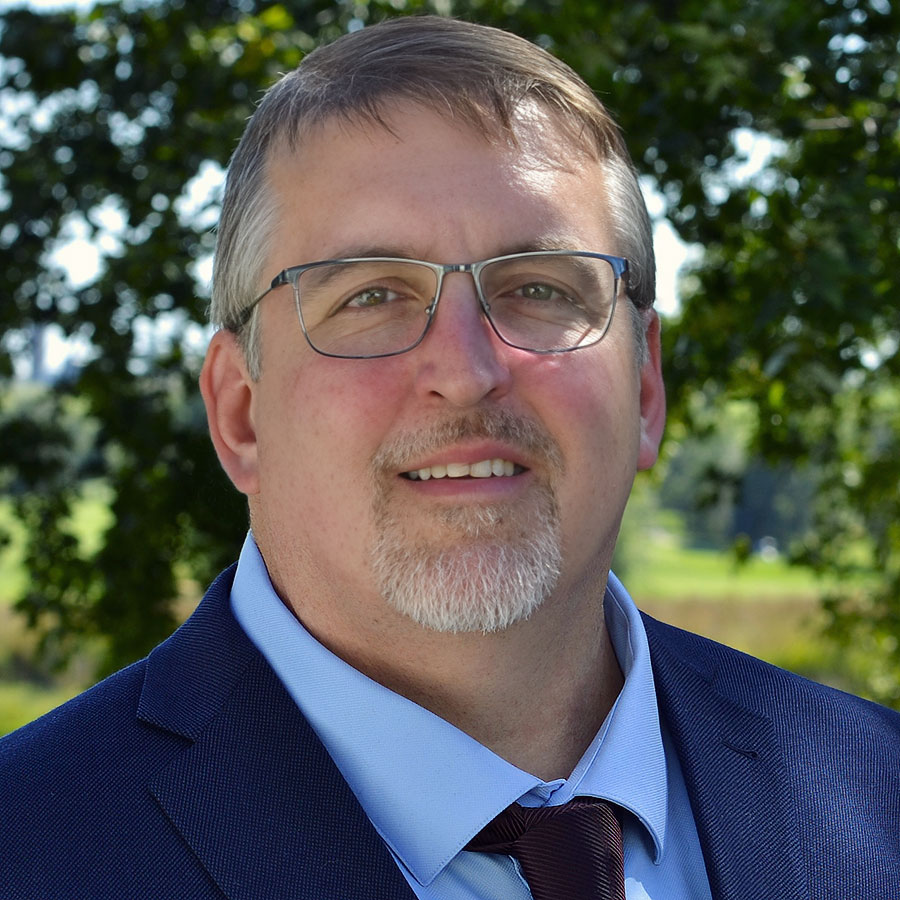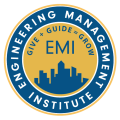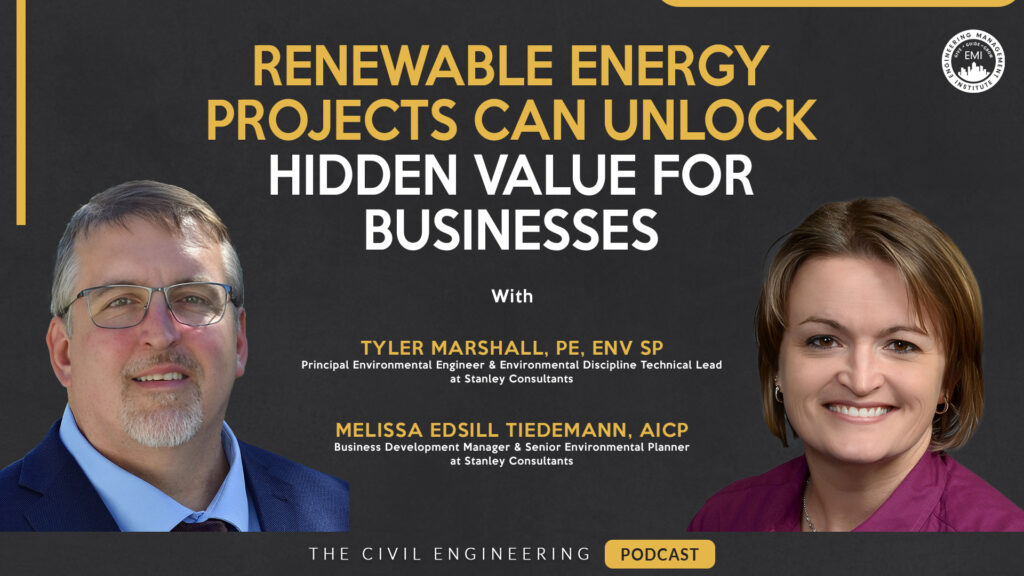In this episode, I talk with Tyler Marshall, PE, ENV SP, principal environmental engineer & environmental discipline technical lead at Stanley Consultants, and Melissa Edsill Tiedemann TEE-DUH-MEN, AICP, business development manager & senior environmental planner at Stanley Consultants, about the hidden impacts of renewable energy projects, the crucial role of public engagement, and the importance of planning for responsible decommissioning.
***The video version of this episode can be viewed here.***
Engineering Quotes:
Here Are Some of the Questions I Asked Tyler and Melissa:
- How can the rapid expansion of renewable energy projects avoid causing unintended environmental and community impacts?
- What are some lesser-known effects of renewable energy projects on local communities, and how can these be proactively addressed?
- What factors should be considered to ensure the responsible decommissioning of renewable energy projects?
- How have you successfully engaged the public to dispel myths and address health concerns related to wind farms and solar panel misconceptions?
- How do you balance technical, environmental, and social considerations to ensure renewable energy projects remain viable and community-friendly?
- What public outreach strategies have been particularly successful in engaging communities early in renewable energy projects?
- What final advice would you give civil engineers to help them navigate the challenges of renewable energy projects and maximize community benefits?
Here Are Some Key Points Discussed in This Episode About How Renewable Energy Projects Can Unlock Hidden Value for Businesses:
- Regulatory oversight and permitting ensure that the rapid expansion of renewable energy projects aligns with sustainable development practices. Third-party reviews play a crucial role in preventing unintended environmental and community impacts.
- Lesser-known effects, such as shadow flicker from wind turbines and sun glare from solar panels, can impact communities. Proper site selection, environmental analysis, and adherence to regulations help mitigate these challenges.
- Decommissioning plans are essential for the long-term sustainability of renewable energy projects. Proper disposal and recycling of infrastructure reduce environmental harm and ensure community support.
- Public engagement is key to dispelling myths and building trust in renewable energy projects. Early and transparent communication, using visuals and simple language, helps communities understand the benefits and address concerns.
- Balancing technical, environmental, and social factors ensures renewable energy projects meet community needs and regulatory standards. Engineers must take a holistic approach to project planning.
- Successful public outreach strategies include direct interactions with local residents, personalized communication, and using non-technical language to make complex topics more accessible.
- Civil engineers should incorporate sustainability frameworks into project planning to enhance efficiency, reduce environmental impact, and align projects with community and regulatory expectations.
More Details in This Episode…
About Tyler Marshall, PE, ENV SP

Mr. Marshall’s environmental project experience includes site evaluation and design for power and renewables projects; soil and groundwater remediation; storm water modeling, design, and permitting; landfill design, operations, and permitting; reclamation of abandoned mine lands;, and pollution prevention. Tyler has extensive experience in various forms of permitting associated with site development and facility operations, form the local to the federal level. Tyler is also an active participant in regulatory agency technical work groups and industry associations.
About Melissa Edsill Tiedemann, AICP

Sources/References:
Stanley Consultants
Connect with Tyler Marshall, PE, ENV SP, on LinkedIn
Connect with Melissa Edsill Tiedemann, AICP, on LinkedIn
We would love to hear any questions you might have or stories you can share on how renewable energy projects can unlock hidden value for businesses.
Please leave your comments, feedback, or questions in the section below.









